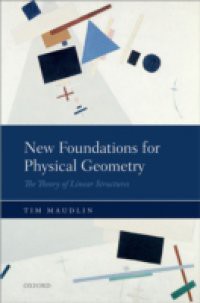Topology is the mathematical study of the most basic geometrical structure of a space. Mathematical physics uses topological spaces as the formal means for describing physical space and time. This book proposes a completely new mathematical structure for describing geometrical notions such as continuity, connectedness, boundaries of sets, and so on, in order to provide a better mathematical tool for understanding space-time. This is the initial volume in a two-volumeset, the first of which develops the mathematical structure and the second of which applies it to classical and Relativistic physics. The book begins with a brief historical review of the development of mathematics as it relates to geometry, and an overview of standard topology. The new theory, the Theory of Linear Structures, is presented and compared to standard topology. The Theory of Linear Structures replaces the foundational notion of standard topology, the open set, with the notion of a continuous line. Axioms for the Theory of Linear Structures are laid down, and definitions of other geometrical notions developed inthose terms. Various novel geometrical properties, such as a space being intrinsically directed, are defined using these resources. Applications of the theory to discrete spaces (where the standard theory of open sets gets little purchase) are particularly noted. The mathematics is developed upthrough homotopy theory and compactness, along with ways to represent both affine (straight line) and metrical structure.

